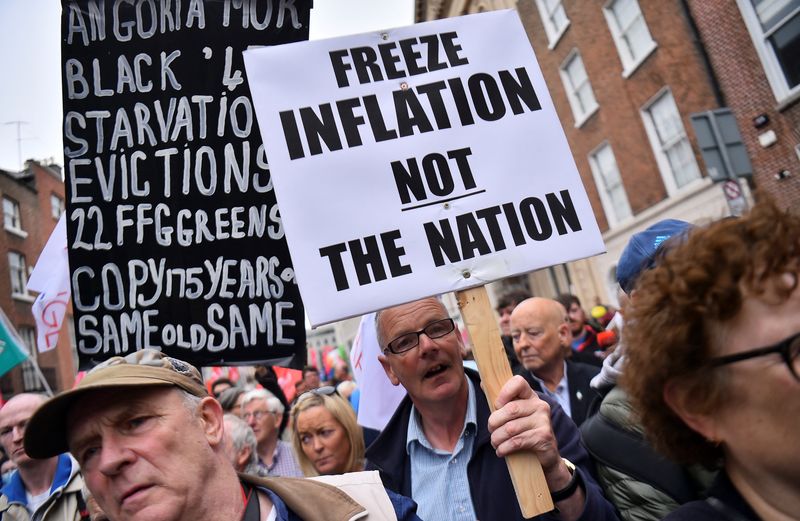By Padraic Halpin
DUBLIN (Reuters) - Ireland can increase its budget package for 2023 to help to fight soaring inflation, the finance ministry said on Monday after forecasting a small budget surplus rather than a deficit this year.
As a result, ministers have 6.7 billion euros ($7 billion) available for spending increases and tax cuts next year, up from 4.5 billion euros previously, though almost half of that has already been allocated to spending plans.
That will necessitate the temporary suspension of a new rule introduced last year tying core government expenditure growth to nominal economic growth, with day-to-day spending set to rise by 6.5% next year rather than the 5% anticipated a year ago.
The finance ministry forecast in April that modified domestic demand - its preferred measure of economic activity - would grow by 3.9% in 2023. Inflation, however, hit an almost 40-year high of 9.6% in June, Eurostat said last week.
Finance Minister Paschal Donohoe said he was confident the government would reinstate the expenditure rule, but that inflation would first have to return to about 2-3%.
"There is now mounting evidence that the economic momentum that we have seen in recent times is slowing," Donohoe told a news conference, adding that he believes the spending plans have the right balance between helping people without adding to inflation.
Donohoe's department on Monday said that it could run a budget surplus of up to 0.5% of gross domestic product (GDP) for 2022 and between 0.25% and 0.75% of GDP in 2023, when the increased budgetary package is taken into account.
Of the 6.7 billion euro package, 3 billion euros is needed to meet spending on existing levels of service, investment plans and demographic costs, while 1.05 billion euros has been earmarked for income tax cuts.
The unallocated remainder earmarked for further spending will also need to cover any new public sector pay deal agreed by trade unions and government. Talks between the two sides ended without agreement last month and have yet to restart.
Further one-off measures to help people to deal with higher energy bills in particular will be introduced on top of the 6.7 billion euro package.

Ministers, who also brought the budget announcement forward to Sept. 27 from mid-October, have said it could also include cuts in childcare and university fees, an extension of temporary cheaper public transport fares and a range of welfare increases for poorer households.
($1 = 0.9568 euros)